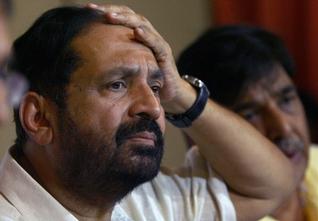
New Delhi, Feb 4: A Delhi court today framed charges against sacked CWG Organising Committee chairman Suresh Kalmadi and nine others for allegedly cheating, conspiring and causing a loss of over Rs 90 crore to the exchequer in a Games-related corruption case.
Special CBI Judge Ravinder Kaur framed charges under various provisions of the IPC and the Prevention of Corruption (PC) Act against Kalmadi and other accused, including OC Secretary General Lalit Bhanot, in the case.
Besides cheating and criminal conspiracy, the accused have also been charged with offences relating to forgery and use of forged documents as genuine, criminal intimidation, destruction of evidence of the IPC and section 13(1)(d) read with section 13(2) (criminal misconduct by public servants) of the PC Act.
After framing of charges, the court fixed February 20 for recording of evidence in the case.
The judge said that the evidence will be recorded on a day-to-day basis barring Monday and Friday.
The accused were chargesheeted by the CBI for "illegally" awarding a contract to install Timing, Scoring and Results (TSR) system for the 2010 CWG to Swiss Timing at inflated rates causing a loss of over Rs 90 crore to the exchequer.
Besides Kalmadi and Bhanot, among the other accused in the case are OC's former Director General V K Verma, former Director General (Procurement) Surjit Lal, former Joint Director General (Sports) A S V Prasad and former Treasurer M Jayachandran. They are no more associated with the sporting body.
The court had on December 21, 2012 passed the order on framing of charges under various provisions of the IPC and the PC Act against Kalmadi and nine other accused in the case.






Comments
Add new comment